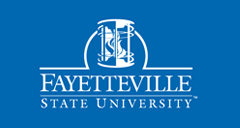Abstract
Advances in technology offer new frontiers in terms of conquering temporal dimensions, but with more significant advancements in technology, there is the possibility of having a diminished return in terms of interpersonal relationships. Without necessarily decrying technology as the culprit of a decrease in human social interaction, this conceptual paper discusses the opportunities provided to individuals through media encounters to be selective in their manner of communicating and the implications of this selectivity. This paper considers the complexity of human learning as based in situational, constructive, biological, and cognitive components underscored through the experiential, multisource nature of understanding. However, many encounters with individuals online become, at times an executive, superficial exchange of information aiming at highlighting the individual self. There is no doubt that technology can be a useful tool, but at the same time, considering the lack of opportunities for social interaction, technology may impede personal and social development in individuals. Therefore, while progress shapes the course of society, the individual may become a victim of society's progress. Fostering social development in today's cultural landscape offers both opportunities and challenges to enhance the connection of the personal and physical presence in the classroom. In this theoretical paper, we will utilize several theoretical frameworks dealing with social and personal development (Bandura, Erikson, Iran-Nejad, and Lave) and challenge readers to explore implications of isolation from technology for the psychosocial development of children, adolescents, and adults while incorporating current research on the issue.
Recommended Citation
Zengaro, Franco; Zengaro, Sally; and ALI, Mohamed A.
(2019)
"Social Isolation and Technology: Implications for Psychosocial Development: A Theoretical Paper,"
Journal of Research Initiatives: Vol. 4:
Iss.
3, Article 6.
Available at:
https://digitalcommons.uncfsu.edu/jri/vol4/iss3/6
Included in
Bilingual, Multilingual, and Multicultural Education Commons, Curriculum and Instruction Commons, Gifted Education Commons, Higher Education Commons, Higher Education and Teaching Commons, International and Comparative Education Commons, Online and Distance Education Commons
